Italian saxophonist Emiliano "Emi" Vernizzi plays Berlin jazz clubs one week and fills stadiums with rock star Ligabue the next, performing for crowds of 150,000. As a founding member of Pericopes+1, he steers one of Europe's notable jazz groups. Masters Dave Liebman and Enrico Rava have championed their music, and Italy's authoritative jazz text, La Storia del Jazz, recognizes them as a vital voice in contemporary music.
Teaching at conservatories in Parma and Cesena, Vernizzi combines traditional saxophone with electronic elements, using analog pedals to expand the instrument's sound without compromising its natural voice. He discusses Pericopes+1's evolution, their album Good Morning World, and the impact of creating music in settings ranging from quiet Italian villages to active European cultural hubs.
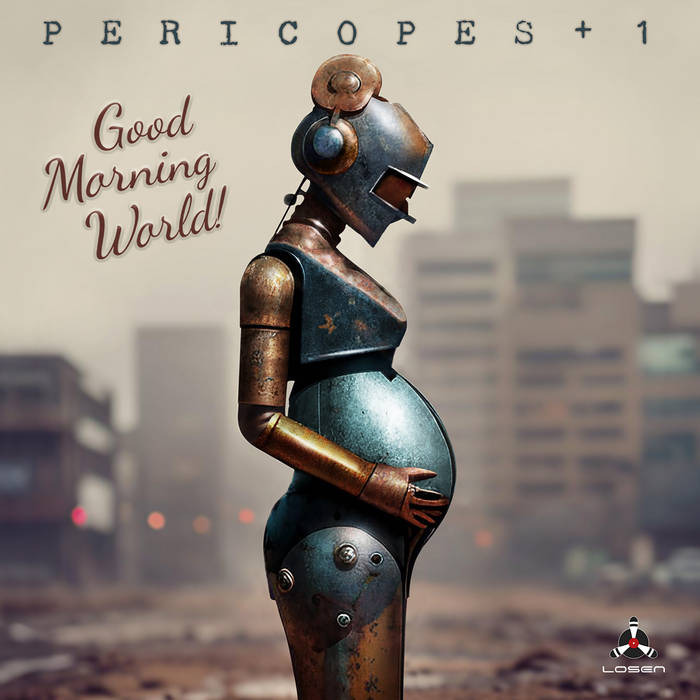
Lawrence Peryer: You began as a sax-piano duo in 2007 before evolving into Pericopes+1. How has your musical approach shifted with the changing lineup and the addition of drums?
Emi Vernizzi: The transition from duo to trio was spontaneous since we needed a more powerful, rockish sound. Having a third element allowed the band to move to a three-way dialogue level on which to compose music more in 3D.
Lawrence: Dave Liebman and Enrico Rava supported your early work. How did their perspectives influence your musical direction?
Emi: Both are the connections between the fathers of tradition and the avant-garde of jazz; they have been able to convey influences that are not 'strictly mainstream' through the various styles that arose after the sixties. Dave and Enrico are courageous examples of jazz's transformation towards modernity; their feedback has encouraged Pericopes to explore our path. Later on, it was nice to share music with them since I was lucky enough to study with Dave; he was an important mentor of mine. With Enrico, I recently collaborated on a project of Lester Bowie's music.
Lawrence: Could you discuss how your work combines the different musical threads—European tradition, African American music, post-rock, and electronica?
Emi: Europe has a strong tradition of classical musical academism, especially Italy (and my city, Parma). We are educated to absorb opera, postwar folk songs, and national songwriting from an early age. Our youthful listening comes from a fabric of subversive music close to rock, punk, prog, and all the niche music. Jazz was a further stimulus for us. It was a complex island that we explored thoroughly and took refuge in.
At a certain point in life, the result of all these inputs becomes a creative necessity to bring together the various influences in our compositional-improvisational method. In Pericopes, there is a lot of writing rigor, as opposed to a more transversal improvisation that does not leave out the melodic lyricism and the symphonic aspect of the narration. There are some limits to respect for this secret recipe to work.
Lawrence: Good Morning World examines humanity during what you call "one of the most significant periods of social transition in modern history." Which specific aspects of this transition most shaped the compositions?
Emi: The composition work has been inevitably influenced by the period experienced in recent years, starting from the sense of social impotence in the face of lockdowns and the return to a general war climate averted after years of pacifist activism. Added to this is the alarm of a triumphant social indifference, the distrust in others replaced by a mere trust in technologies, especially when these replace human relationships.
The songs explore various settings narratively, leaving us to reflect on the themes of this transition of the human: the network, augmented reality, artificial emotions, the dogma of the algorithm, and partly also the political exploitation of post-truth, freedom of speech (in the song "Assange"), and the ever-increasing dependence on the system. In all this, there is also a disillusionment in faith, freedom, and truth. There is coherence with the discography of previous Pericopes productions, starting from the album covers, which are always very carefully crafted in the symbolism of the themes to reflect on.
Lawrence: The album explores "post-human characters that flow beyond the chronology of time." It is evocative of extra-dimensional creatures. Could you explain what this means to you and how this concept arises in specific pieces?
Emi: Good Morning World is conceived as a post-human odyssey. Mythology is full of characters that guide, alert, and hinder the hero's journey on his path, which corresponds to the reflection of life that flows. Human and artificial spirits visit the album's music in dialogue with each other in search and reflection on the concepts of happiness, faith, freedom, and truth.
However, there is a symbiosis and mutual dependence in which one is often confused with the other in a logical short circuit of who created who. It is the concept of homo-deus (god>man>machine) in which contemporary man is already the reflection of his technological image. We played by mixing music with dialogues and imaginary characters (some created with AI starting from the texts of futurist documentaries of the fifties), others real (Biagi and Pasolini, Julian Assange, Stanley Kubrick, various political figures), others hybrid and universal (like the voice of HAL 9000 repurposed in different languages).
Lawrence: The collaboration with violinist Anaïs Drago on "Cosmic Nirvana" and bassist Rosa Brunello on "Assange" brings new textures to your sound. What drew you to these particular musicians?
Emi: There has been a no-guests policy in the past. However, this album presented an opportunity to introduce some artists who have circled Pericopes' career. Rosa Brunello and I already knew each other from the first concerts we participated in with our projects (Pericopes were still in a duo version). She has had a fantastic career, and reuniting our paths in a production together was nice. She is the first bass player in Pericopes' history. When I composed "Assange," I thought it should be only her to play it for the political activism that distinguishes her.
About Anaïs, I love the strings. We included a string quartet in the previous album, even if it remained in the background. We wanted something more of a protagonist and a dialogue with the band for this album. Anaïs was the perfect person for the impetuous character of "Cosmic Nirvana," and she had also already collaborated with Ruben. Having two female guests gave an extra energy that was missing.
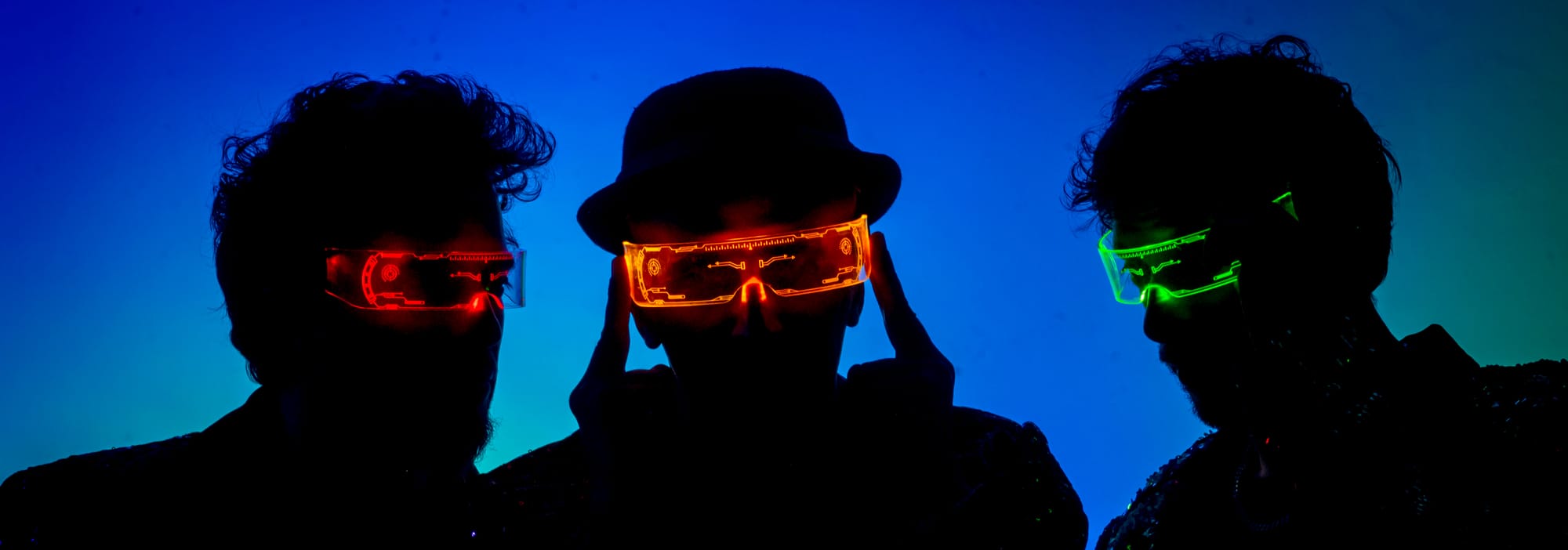
Lawrence: Your saxophone setup includes an unusual analog pedalboard. Could you describe its development and how it shapes your sonic palette?
Emi: This pedalboard is very similar to what you might find in a guitarist. In truth, the circuitry is designed so that the natural sound of the sax is not added to the electronic process but rather placed alongside it. In this way, it is like playing, followed by a sort of shadow from which I can decide in real-time how much to distance myself or merge. The compositions are not conditioned by the type of electronics I use precisely because the pedalboard represents a color in addition to the acoustic one of the sax. A saxophonist spends his entire life shaping a certain timbre; I did not want this to be tampered with.
Lawrence: The album balances sonic elements like the Fazioli F278 mk3 piano with vintage electronics from the 1970s. How do you approach this combination of old and new technologies?
Emi: Claudio is a piano master with an uncommon mastery of classical and mainstream jazz piano timbre. He can switch from Oscar Peterson's touch to Chopin's, putting them in conversation. I was amazed to see him handle the synths with the same ease, knowing their right places without compromising the impeccable sound of the Fazioli F278 mk3. He enhances it further where the acoustic sound cannot—and obviously must not—arrive. He is a musician with very clear ideas of the final result.
Lawrence: The album title, Good Morning World, suggests awakening and greeting. Perhaps the startup screen for a new device. What message did you want to convey to listeners entering this sonic world you've created?
Emi: Good Morning World is a title with an optimistic but ironic flavor, almost a propaganda-style slogan. It is a warning to become aware of the present through a look FROM the future. This future is already here, dazzling and fascinating in its technological potential and, at the same time, less mysterious and unpredictable than what has always been thought in the past. It's a more defined future, an invitation to become aware of the present and the importance of not losing control of ourselves.
Lawrence: Your experience ranges from 150,000-person crowds with Ligabue to intimate jazz clubs. How does this spectrum of performance contexts affect your approach to music-making?
Emi: There is not much difference playing in front of big crowds or ten people if both audiences are interested in what you play. The synergy between the performer and the audience is the same, but we are talking about different numbers. The problem arises when you make music for people who are not interested when the music becomes 'wallpaper' or a side dish to something else. This situation can be frustrating sometimes.
Lawrence: You've presented masterclasses at prestigious institutions like the Royal Conservatoire of Scotland. What core principles do you emphasize when developing musicians?
Emi: Those were masterclasses in music performance that we did with Pericopes+1 in the UK. When you explain your music to others, it is incredible how simple it seems. You then understand that the most important thing is to teach how to insist on your musical, compositional, and improvisational ideas. You must believe in them, develop them, preserve them, and make something out of them that will constitute your language. It is a process refined through practice made of successes and failures.
A good masterclass should not offer theoretical notions but suggestions on observing theory from other points of view. Teaching how to develop an aesthetic in music is important because it is an element that a "non-musician" audience will always be able to appreciate.
There is much more information, in multiple languages, about the various incarnations of Pericopes at pericopes.it and about Emi at emilianovernizzi.com. The music of Pericopes is available on Bandcamp.
If you enjoyed this artist, then be sure to check out:

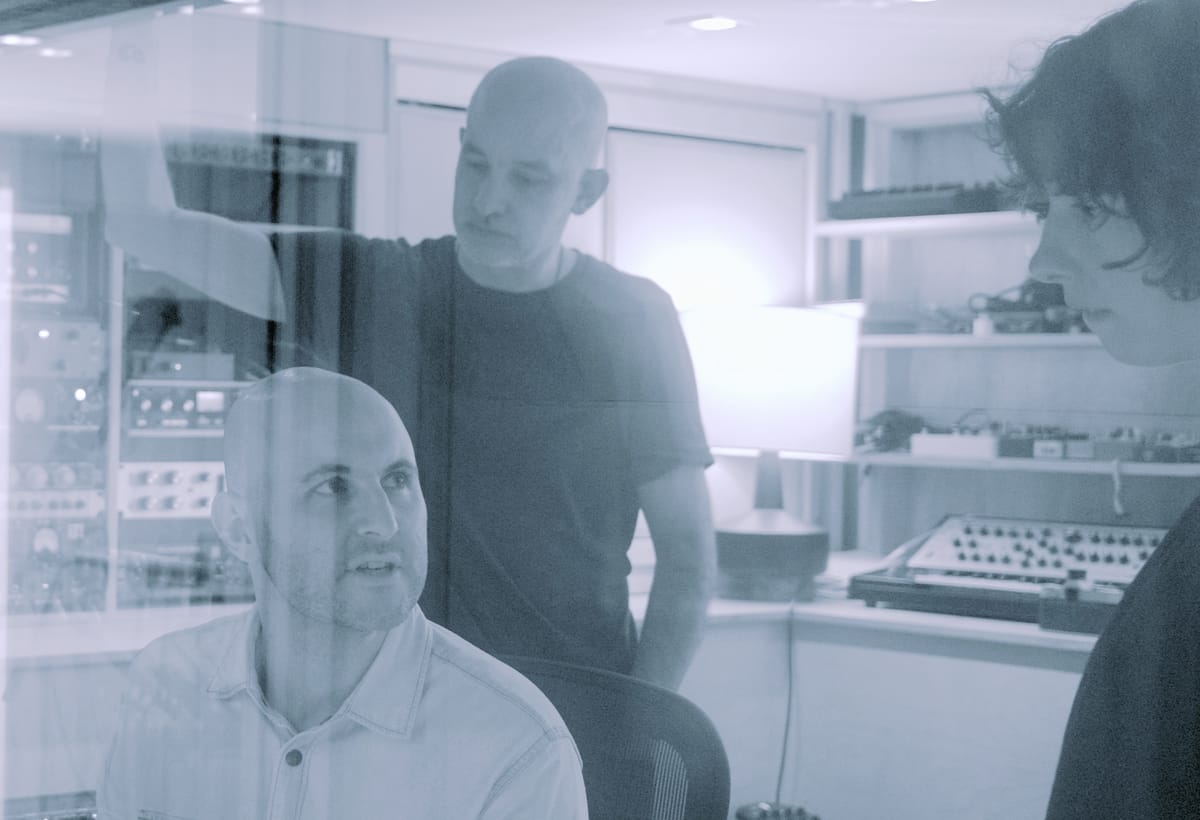






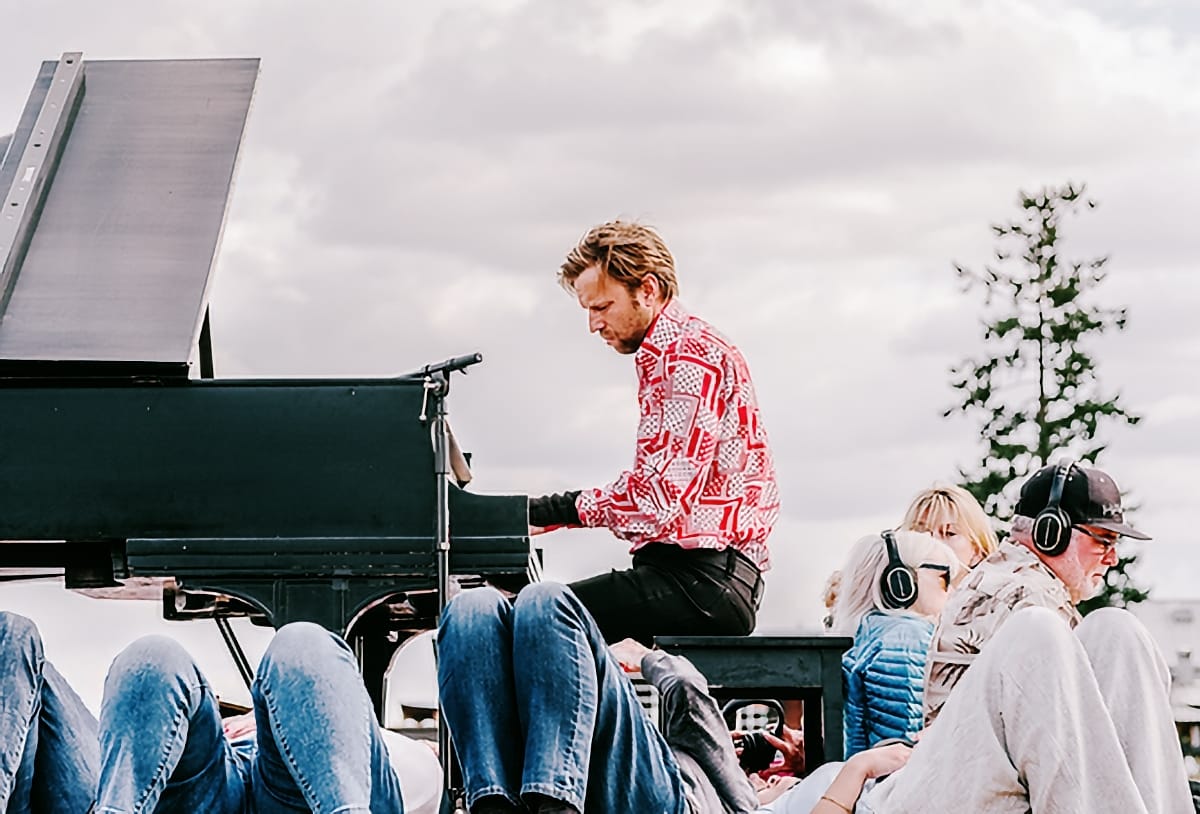
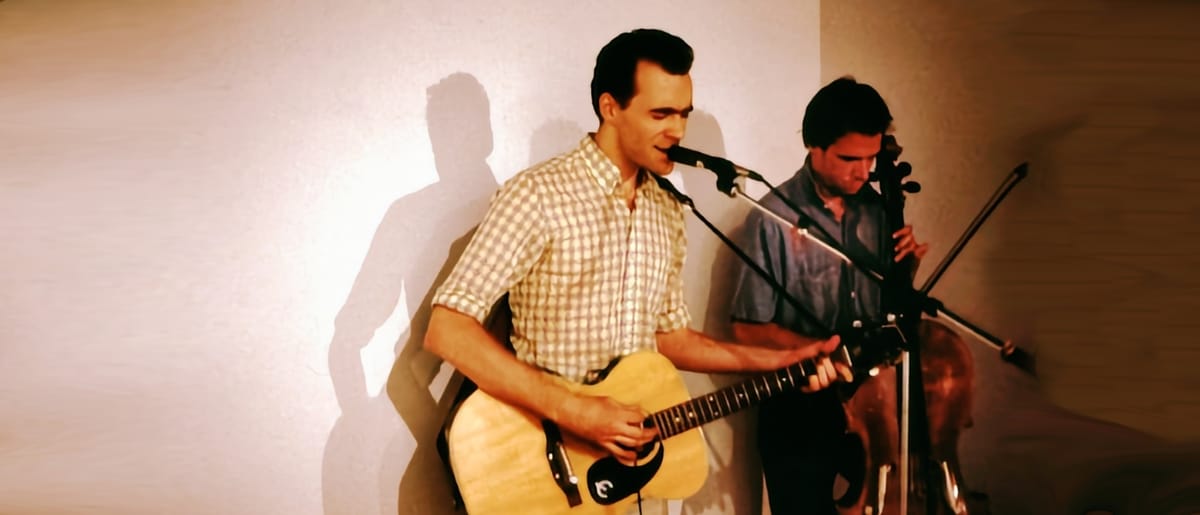
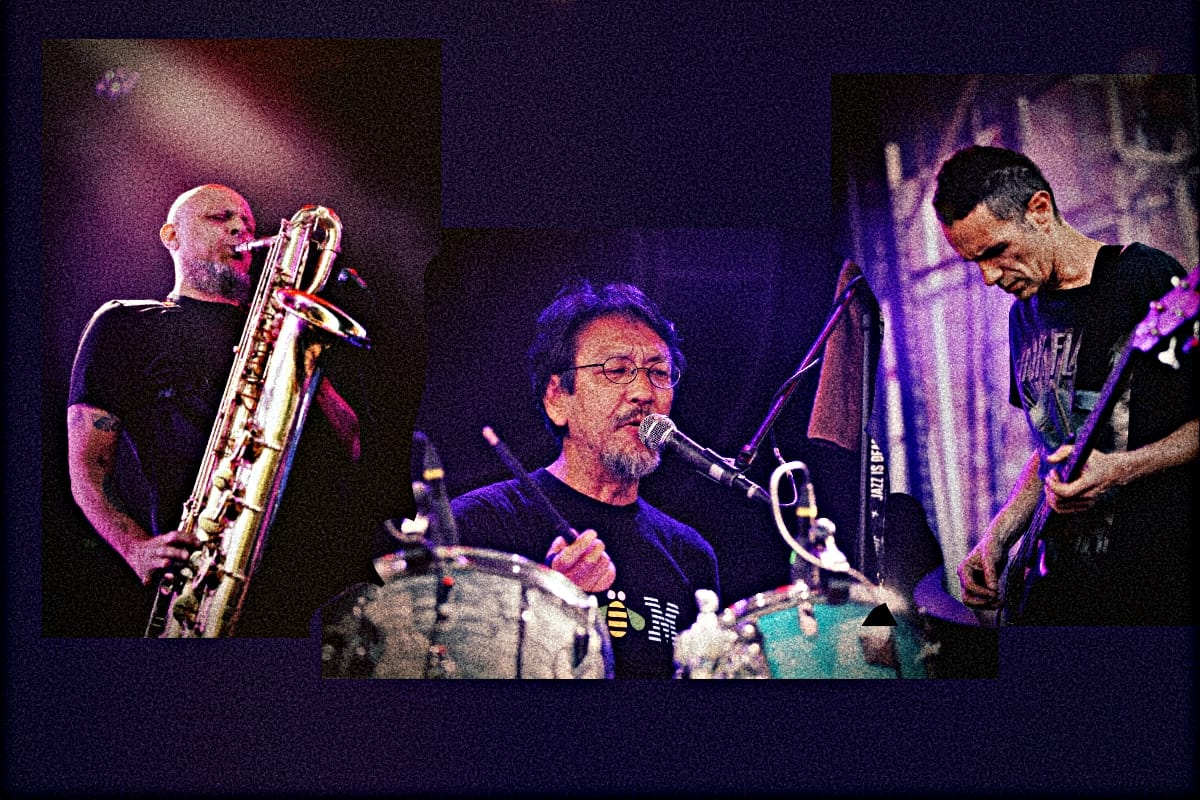
Comments